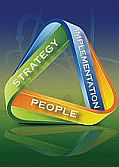Speakers
Claude NORMAN
(International Atomic Energy Agency)
Shoko Iso
(Nuclear Material Control Center)
Description
Two of the three generic objectives of safeguards under a comprehensive safeguards agreement (CSA) are to detect any undeclared production or processing of nuclear material in declared facilities and locations outside facilities (LOFs) and to detect any diversion of declared nuclear material at facilities and LOFs. The effectiveness and efficiency of the IAEA in reaching these objectives strongly relies on the quality of the State or regional system of accounting for and control of nuclear material (SSAC/RSAC) which in turn depends on the nuclear fuel cycle facility operators’ capabilities to establish accurate and precise estimates of the inventories and flow of nuclear material.
To monitor the performance of the State’s nuclear fuel cycle facilities’ accounting and measurement systems in a collaborative way, the IAEA initiated yearly trilateral liaison meetings with relevant State or regional authorities and bulk handling facilities’ operators to review material balance evaluation results for the elapsed material balance period and their trends over the facility lifetime. During these meetings, trends of concern are examined and the IAEA proposes remedial actions, drawing on its expertise and experience of observations in similar facilities.
Pilot trilateral meetings held in Japan over the past years demonstrate the benefits of this collaborative framework. Biases in material balance variables are identified, their causes determined and a set of recommendations is drawn to implement remedial actions before they become a safeguards concern. In the margins of these meetings, workshops are also organised to foster exchanges in the fields of measurement and analytical methods as well as statistical methodologies used to determine their uncertainties and assess the sensitivity of material balances to these uncertainties. In the context of its strategy to enhance cooperation with States, reinforce mutual trust and pursue further efficiencies though collaboration and synergy, the IAEA hopes to extend these trilateral exchanges to all SSACs/RSACs.
| Country or International Organization | International Atomic Energy Agency |
|---|---|
| EPR Number (required for all IAEA-SG staff) | 713 |
Authors
Claude NORMAN
(International Atomic Energy Agency)
Shoko Iso
(Nuclear Material Control Center)
Co-authors
Ke Zhao
(International Atomic Energy Agency)
Portaix Christophe
(International Atomic Energy Agency)
Robert Binner
(IAEA)

